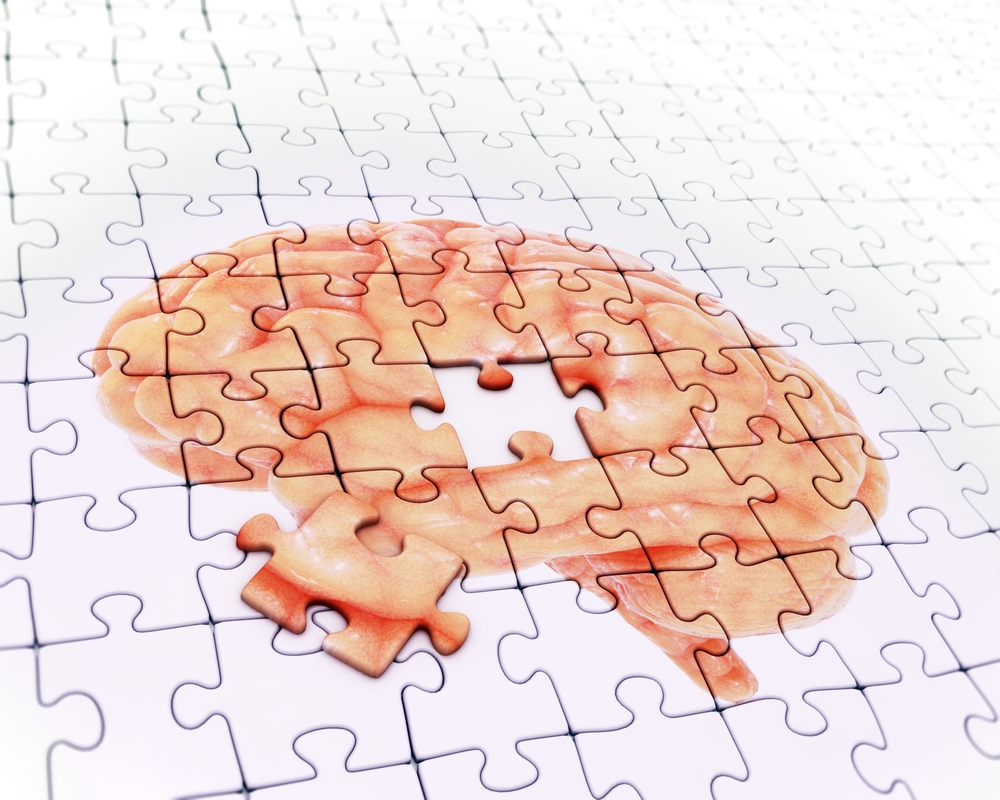
The National Institute of Aging explains that as people age, free radicals can build up in nerve cells, which leads to damage that may contribute to the onset of Alzheimer's. Some research has suggested that certain antioxidants, foods and vitamins help prevent this oxidative damage in the brain, while other studies' results are inconclusive or show no effect at all. Some of the many vitamins and supplements sometimes recommended to slow the symptoms of Alzheimer's disease are vitamins B, C, D, and E.
The Fisher Center for Alzheimer's Research Foundation writes that in one study, vitamin E supplements did not have a direct effect on memory or thinking skills, but when taken at a dose of 2,000 IUs a day, did help those in the earlier stages of Alzheimer's take better care of themselves. While the results are intriguing, the researchers looked at 600 elderly veterans, who were mostly male, and all were already taking medication for their mild to moderate Alzheimer's. Of those participating, 97 percent were male and 86 percent were white, according to Science-Based Medicine.
Other research has suggested that vitamin E is better for those with later stage Alzheimer's and this was one of the first time researchers have concentrated on those with early disease. However, as research is still ongoing, other vitamins, such as vitamin B may offer more concrete benefits in preserving brain health.

Consuming vitamin B-rich foods
Vitamin B has also shown promising signs of slowing the progression of Alzheimer's. In a study from Oxford's Nuffield Department of Clinical Neurosciences of 150 seniors who suffered from mild cognitive impairment, researchers gave vitamin B supplements to participants, while other received a placebo pill. Gray matter in the brain shrinks with the development of cognitive decline, and was a measure the researchers used. After two years, while both groups experienced shrinkage, those who were taking vitamin B supplements showed less shrinkage than the control group.
While research is still ongoing regarding the precise benefits of vitamin B for those with Alzheimer's or other dementia-related impairments, it is dangerous not to get enough vitamin B-rich foods in a daily diet. Alzheimer's.com writes that there are a few foods you might want to consider adding more of on your facility's menu: eggs, beans, dairy, poultry, fish, leafy green vegetables, peas, meat and certain cereals and breads.
"There is still no cure for Alzheimer's."
Too much of a good thing
While these studies are promising, Science-Based Medicine wrote that these results do not mean that every resident should start taking high doses of vitamin E or other supplements in an effort too fend off Alzheimer's. As there are still many unanswered questions, and minorities and females were vastly underrepresented in the trials, there is still research left to uncover in regards to the link between dementia and vitamin E.
"No one should take vitamin E to treat Alzheimer's disease except under the supervision of a physician," the Alzheimer's Association cautions. "Vitamin E – especially at the high doses used in the ADCS study – can negatively interact with other medications, including those prescribed to keep blood from clotting or to lower cholesterol."
There is still no cure for Alzheimer's. However, experts have created a six-pillar lifestyle regimen that can be a benefit in slowing its progression or even prevent it altogether. These pillars are: regular exercise, social interaction, a healthy diet, mental stimulation, quality sleep and stress management. Following these tips, along with consulting with a doctor regarding vitamin intake are all smart steps residents can make to remain alert and healthy as they age.
To learn more about this subject and caring for residents with dementia, contact Mariposa Training or take one of our classes starting today.



